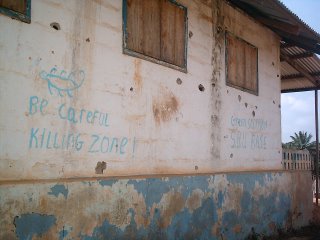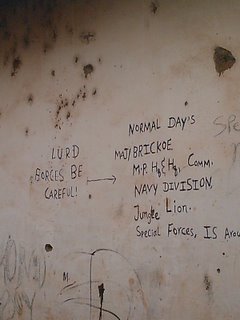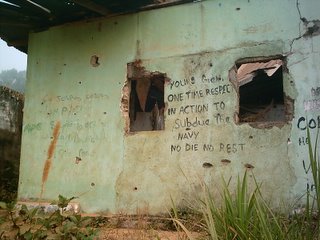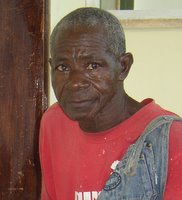
I returned from Lofa County to a house with kids' handprints everywhere and the news that Mr. Marshall, our beloved painter, died while I was away.
When we renovated the house we live in, Mr. Marshall was the only professional among a motley crew of guys who didn’t know what they were doing. The “painters” didn’t know about using masking tape or newspapers to keep paint off where it didn’t belong, they left oil paint to harden on the brushes overnight, and one of them put so much paint on the kitchen ceiling that we had little icicle-looking things forming and threatening to drip on our heads. Mr. Marshall corrected their mistakes, taught them patiently, and did his own work carefully and beautifully. “Quick impact, Mr. Marshall – you’re too slow!” my husband would say. But Mr. Marshall would just laugh and refuse to rush. Long after the main job was done, he was the one we called to do extra paint jobs and touch-ups here and there.

I loved and respected Mr. Marshall not just as a painter, but as a friend. I liked listening to his stories about painting the Executive Mansion and Tupee Taylor’s house, and I enjoyed watching him interact with my two little boys.
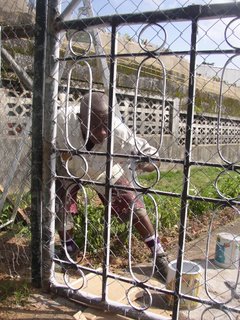
We miss him dearly, but perhaps the Gates of Heaven needed a new coat of paint and Mr. Marshall, at 70, needed a rest. I, for now, will live with my walls the way they are because I cannot imagine having someone else paint them for me.
